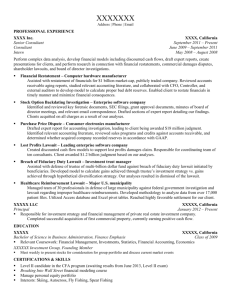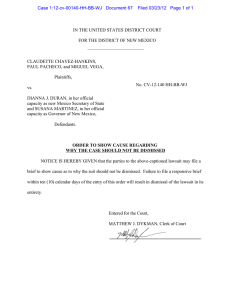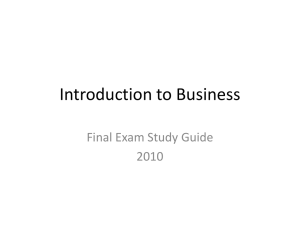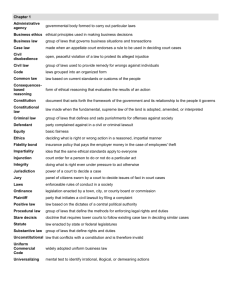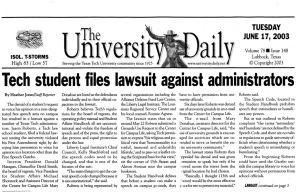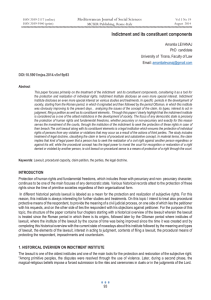s sue Is gal
advertisement
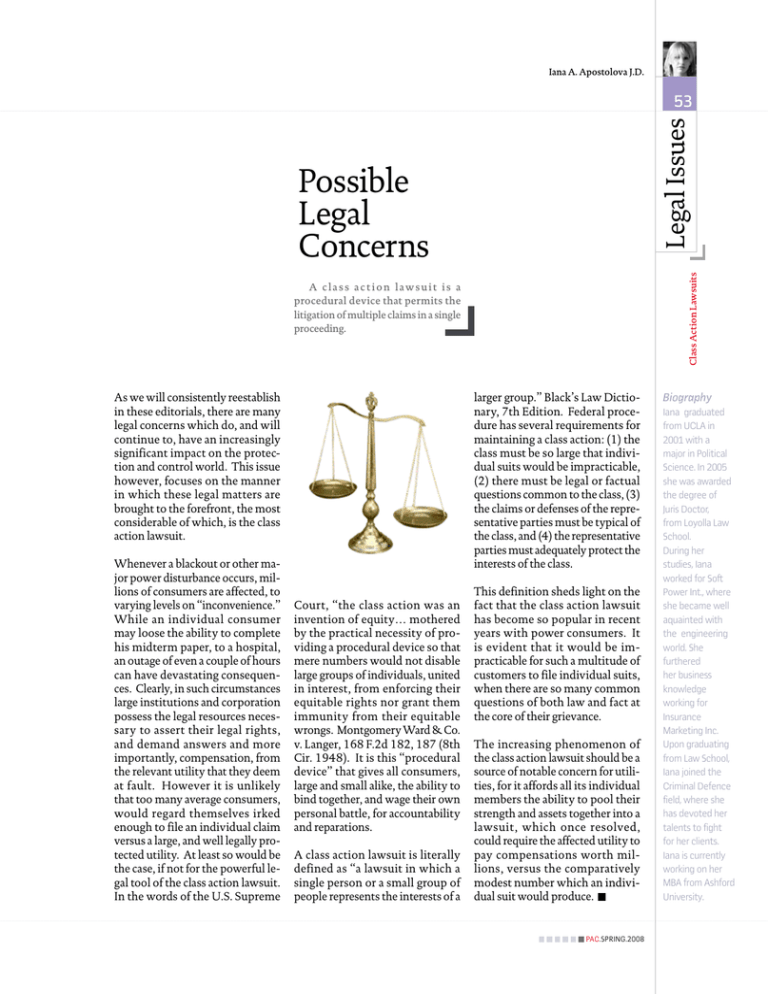
Iana A. Apostolova J.D. Legal Issues 53 Class Action Lawsuits Possible Legal Concerns A class act ion lawsuit is a procedural device that permits the litigation of multiple claims in a single proceeding. larger group.” Black’s Law Dictio­ nary, 7th Edition. Federal proce­ dure has several requirements for maintaining a class action: (1) the class must be so large that indivi­ dual suits would be impracticable, (2) there must be legal or factual questions common to the class, (3) the claims or defenses of the repre­ sentative parties must be typical of the class, and (4) the re­presentative parties must adequately protect the interests of the class. As we will consistently reestablish in these editorials, there are many legal concerns which do, and will continue to, have an increasingly significant impact on the protec­ tion and control world. This issue however, focuses on the manner in which these legal matters are brought to the forefront, the most considerable of which, is the class action lawsuit. Whenever a blackout or other ma­ jor power disturbance occurs, mil­ lions of consumers are affected, to varying levels on “inconvenience.” While an individual consumer may loose the ability to complete his midterm paper, to a hospital, an outage of even a couple of hours can have devastating consequen­ ces. Clearly, in such circumstances large institutions and corporation possess the legal resources neces­ sary to assert their legal rights, and demand answers and more importantly, compensation, from the relevant utility that they deem at fault. However it is unlikely that too many average consumers, would regard themselves irked enough to file an individual claim versus a large, and well legally pro­ tected utility. At least so would be the case, if not for the powerful le­ gal tool of the class action lawsuit. In the words of the U.S. Supreme Court, “the class action was an invention of equity… mothered by the practical necessity of pro­ viding a procedural device so that mere numbers would not disable large groups of individuals, united in interest, from enforcing their equitable rights nor grant them immunity from their equitable wrongs. Montgomery Ward & Co. v. Langer, 168 F.2d 182, 187 (8th Cir. 1948). It is this “procedural device” that gives all consumers, large and small alike, the ability to bind together, and wage their own personal battle, for accountability and reparations. A class action lawsuit is literally defined as “a lawsuit in which a single person or a small group of people represents the interests of a This definition sheds light on the fact that the class action lawsuit has become so popular in recent years with power consumers. It is evident that it would be im­ practicable for such a multitude of customers to file individual suits, when there are so many common questions of both law and fact at the core of their grievance. The increasing phenomenon of the class action lawsuit should be a source of notable concern for utili­ ties, for it affords all its individual members the ability to pool their strength and assets together into a lawsuit, which once resolved, could require the affected utility to pay compensations worth mil­ lions, versus the comparatively modest number which an indivi­ dual suit would produce. PAC.SPRING.2008 Biography Iana graduated from UCLA in 2001 with a major in Political Science. In 2005 she was awarded the degree of Juris Doctor, from Loyolla Law School. During her studies, Iana worked for Soft Power Int., where she became well aquainted with the engineering world. She furthered her business knowledge working for Insurance Marketing Inc. Upon graduating from Law School, Iana joined the Criminal Defence field, where she has devoted her talents to fight for her clients. Iana is currently working on her MBA from Ashford University.

